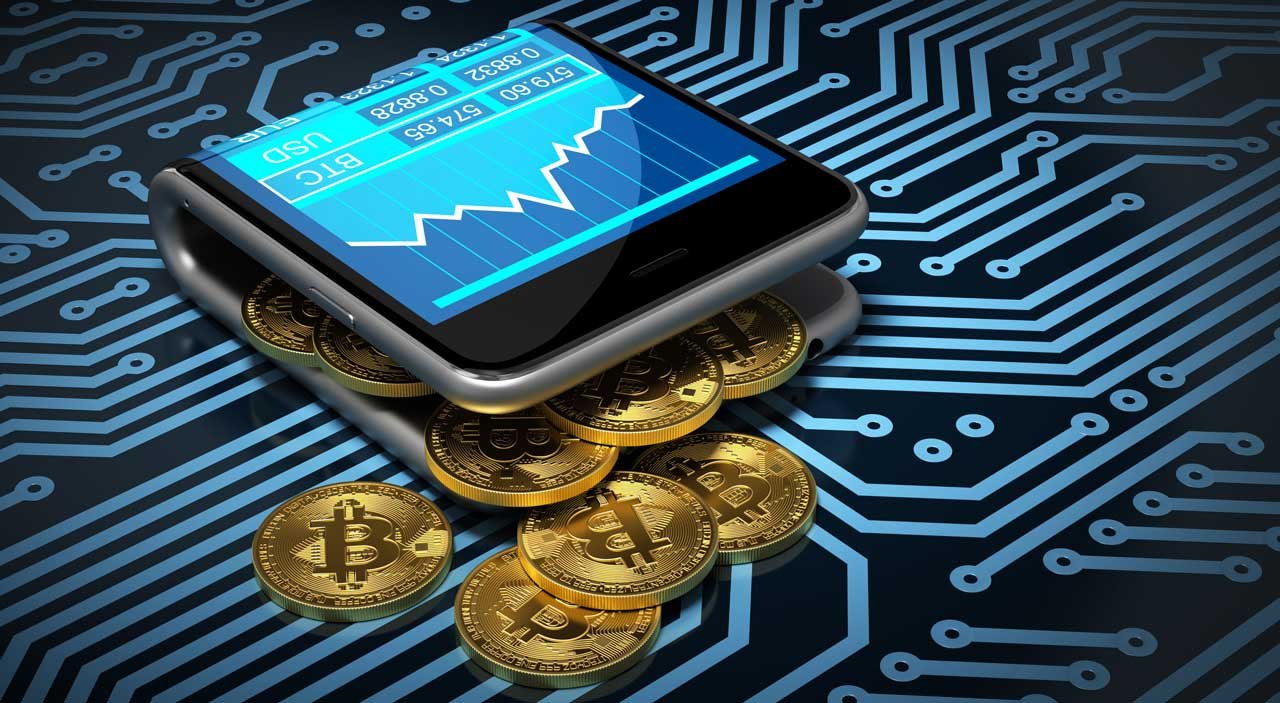That’s it, you’ve taken the plunge by offering yourself your first crypto currencies! You have also heard of hacks and you don’t know how to keep your precious loot in a safe place. Short-zoid simply explains how to choose its medium to store its crypto currencies and Bitcoins.
If you have been seduced by cryptocurrencies and especially by Bitcoin, it is in part thanks to its decentralized nature. You have also understood that the Bitcoin blockchain is tamper-proof.
The elimination of the banking intermediary, however, implies that you become the own guarantor of the security of your tokens. And that’s the rub. How to keep your crypto-currencies safe?
To simplify, there are 4 different ways to keep your cryptocurrencies, each with its own level of security:
“CFD” or Trackers type platforms
Some “multi-investment” platforms offer you to buy crypto-currencies, in CFD format. This is the case for example with Etoro or Revolut. CFDs (contracts for difference) are financial products indexed to changes in an underlying (Bitcoin for example). In other words, you do not own your Bitcoins. Without any guarantee or private key, you operate in a closed system that does not allow you to send your cryptocurrencies to a third party. These platforms do not pose a security problem as such, but there is nothing to prove that the real assets are bought in return (for the Trackers). These platforms may therefore be suitable, if you only want to stick to trading, without being part of the ecosystem.
Crypto Exchanges
Although the origin of all bitcoin produced, miners represent only a portion of the current holders of Bitcoin and other cryptocurrencies. For many, Exchanges are therefore the obvious gateway to the crypto universe: Bitfinex, Kraken, Huobi, Coinbase or Binance to name only the most famous.
But the latter, however, suffer from a relatively opaque operation, even a sulphurous reputation. And for good reason:
In February 2014, 744,408 Bitcoins disappeared on the MT platform. Gox, then the undisputed leader in the field. The Exchange was reportedly the victim of a hack. The adage “too big to fail” does not seem to apply to the world of crypto currencies.
At the risk of repeating ourselves, it is important to point out that it was not the Bitcoin Blockchain that was hacked, but an Exchange on which they were stored.
Exchanges offer the opportunity to trade hard and soft Bitcoins, allowing you to be an integral part of the ecosystem.
On the other hand, you do not hold your private key and that is why from a certain amount (defining it is your responsibility) it is no longer prudent enough to store your crypto currencies on an Exchange. A wallet seems more appropriate.
Hot wallets
An online wallet (hot wallet in English) allows you, as its name suggests, to be able to dispose of your cryptocurrencies. It is a direct interface with the blockchain, which gives you the possibility, thanks to the private key, of finding your tokens even if this wallet is closed. The online portfolio is most often materialized as an application, available on the web or via a smartphone.
You may also plan to spend your cryptocurrency to purchase physical goods or other tangible assets.
Where an Exchange acts as an intermediary, a wallet opens the door to over-the-counter (OTC) transactions.
Many businesses and e-commerce sites are opening up to crypto payments.
You can treat yourself to a Lamborghini, an apartment or bottles of Grands Cru. If Bitcoin were to prove its safe haven, there is no doubt that it will establish itself as the go-to cryptocurrency for large transactions.
For lower amounts, the Lightning Network (in the case of Bitcoin) allows you to reduce transaction fees.
You will find a list of traders who accept Bitcoin on Bitcoin.com, Spendabit, Coinhood or Coinmap (non-exhaustive list).
Cold wallets
To best protect your private key and therefore access to your crypto-assets, the cold wallet solution offers the highest level of security for storing crypto currencies.
A cold wallet can take the form of paper, a USB key, hardware or even an engraved metal plate.
The offline wallet is generally intended to be discreet and mobile. If you wish, you can therefore have all your fortune in a usb key around your neck.
The best known of all is French! The Ledger company has been selling cold wallets since 2014. The Ledger Nano S, sold over 1.6 million copies, comes in the form of a usb key with a digital screen.
Be aware that if you lose your hot wallet, there are ways to recover your private key. By having previously defined and saved a recovery phrase, for example.
